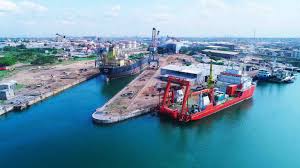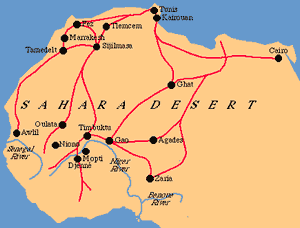Ghana’s Glory Days in Shipbuilding: From Nkrumah’s Black Star Dream to a Maritime Rebound

Ghana’s Glory Days in Shipbuilding: From Nkrumah’s Black Star Dream to a Maritime Rebound
Ghana once dreamed big under Kwame Nkrumah, building ships, owning fleets, and running the Tema Shipyard. This is the story of Ghana’s maritime glory days, its decline, today’s struggles, and the lessons for a comeback.
Introduction: When Ghana Dreamed in Ships
Mention Ghana, and people think of gold, cocoa, or Asamoah Gyan’s World Cup screamers. But hidden in the country’s post-independence story is a chapter many forget: the dream of being a maritime giant. Yes, Ghana once set its eyes on the sea. Not just fishing canoes and coastal trade, but proper shipyards, national shipping fleets, and a place at the global maritime table. Under Kwame Nkrumah, Ghana wasn’t only the “Black Star of Africa”, it wanted to be Africa’s anchor on the seas. This is the story of Ghana’s shipbuilding glory days, the painful decline, the present situation at Tema Shipyard and beyond, and the lessons for a bold rebound.
Before Independence: Canoes and Coastal Craftsmanship
Long before European shipyards entered the picture, Ghanaian coastal communities had already carved out a reputation for maritime craftsmanship. The Fante, Ga, and Nzema built large wooden canoes that carried people, goods, and ambitions across West African waters. These canoes weren’t luxuries; they were lifelines. They ferried cargo when European ships couldn’t dock near shallow shores. In a way, they were the unsung logistics network of early Atlantic trade. But as powerful as those traditions were, Nkrumah wanted Ghana to step beyond fishing canoes and embrace the industrial age of shipbuilding.
The Nkrumah Era: Black Star Rising
When Ghana gained independence in 1957, Nkrumah’s vision was not just political; it was industrial. He understood that control of the seas was control of trade. And if Ghana wanted to reduce dependency on foreign powers, it had to own and build ships. Two big moves defined this maritime dream:
1. The Black Star Line (BSL)
• Established in October 1957, the Black Star Line was Ghana’s national shipping line.
• Its purpose? To compete with foreign fleets and give Ghana (and Africa) a fair share of the shipping business.
• By 1974, the Black Star Line owned 16 vessels, each capable of carrying about 10,000 metric tons.
• Many ships were named after Ghanaian rivers, MV Prah River, MV Offin River, symbols of a fleet tied to Ghana’s identity.
• For a time, the Black Star Line carried Ghana’s cocoa, timber, and manufactured goods across oceans. This wasn’t just shipping; it was symbolism. It told the world: Africa can sail on its own.
2. Tema Shipyard and Dry-dock
• In 1962, Nkrumah officially opened Tema Port, Ghana’s biggest maritime gateway.
• By 1964, construction began on the Tema Shipyard and Dry-dock.
• The facility was designed to be the largest dock between the Cape of Good Hope (South Africa) and the southern tip of Europe, a massive industrial leap.
• By 1970, the shipyard had become a statutory corporation, the Tema Shipyard and Dry-dock Corporation.
Together, the Black Star Line and Tema Shipyard were Nkrumah’s twin anchors, a shipping company to run the seas, and a shipyard to build and repair vessels. Ghana wasn’t just participating in maritime trade; it was positioning itself to dominate it.
The Decline: When the Dream Sank
But like many of Nkrumah’s bold projects, the maritime dream didn’t stay afloat forever. Several storms hit:
1. Political Upheaval. Nkrumah was overthrown in 1966. His successors didn’t share the same industrial vision, and the Black Star Line began to drift without direction.
2. Management and Corruption Issues. Reports of poor management and financial missteps plagued the Black Star Line. Vessels were neglected, operations became inefficient, and profits leaked away.
3. Global Competition. While Europe and Asia pushed ahead with steel shipbuilding and high-tech fleets, Ghana’s industry stalled. The technology gap widened.
4. Privatisation Missteps. In 1996, Ghana sold 60% of Tema Shipyard to Penang Shipbuilding & Construction (Malaysia). The idea was to bring in investment and expertise. Instead, underinvestment and mismanagement followed. The facility was later taken over by Boustead but declined further. Eventually, the government had to buy back the 60%, returning it to state ownership.
5. Collapse of the Black Star Line. By the late 1980s and 1990s, the Black Star Line had effectively collapsed. Once a proud fleet of 16 vessels, it was reduced to nothing. Ghana had gone from ship-owner to ship-dependent. The dream of being Africa’s maritime powerhouse sank and sank hard.
The Present Situation: A Shipyard in Survival Mode
Today, Ghana’s maritime industry is alive, but far from Nkrumah’s bold vision.
Tema Shipyard
• Now under the Ghana Ports and Harbours Authority (GPHA).
• Still focused mainly on repairs and maintenance, not new shipbuilding.
• In 2021, the Environmental Protection Agency ordered obsolete machines at the shipyard to be decommissioned.
• In 2023, GPHA’s Director-General said at least US$200 million was needed to modernise the shipyard.
• In 2025, Tema Shipyard announced 24-hour operations to improve efficiency and reduce turnaround times.
• Government officials continue to pledge revival, but progress is slow.
Shipping
• Ghana still imports most vessels for fishing, transport, and tourism.
• No national shipping line exists to replace the Black Star Line.
• Private companies dominate, often relying on foreign-flagged ships.
• Traditional Boatbuilding
• Along the coasts, canoe construction continues a craft that has survived centuries.
• Some builders are experimenting with fibreglass, but large-scale vessel construction remains out of reach.
In short, Ghana has the coastline, the history, and the infrastructure base, but the ambition is sleeping.
Lessons from the Past
The story of Ghana’s maritime rise and fall isn’t just history; it’s a mirror. Here are the big takeaways:
1. Vision Alone Isn’t Enough. Nkrumah had the vision, but political instability after his fall killed continuity. Big projects need long-term protection beyond one leader.
2. National Assets Need Shielding. The Black Star Line and Tema Shipyard both fell victim to mismanagement and corruption. Without accountability, even the best ideas collapse.
3. Technology Gap Hurts. While others upgraded to modern fleets, Ghana lagged. Tradition must be blended with innovation, or industries get left behind.
4. Partnerships Can Fail Without Oversight. The privatisation of Tema Shipyard in 1996 was supposed to bring expertise. Instead, it drained the facility. Partnerships need strong regulation and accountability.
How Ghana Can Rebound
The good news? Ghana’s maritime dream doesn’t have to stay buried. A rebound is possible, but it requires bold moves.
1. Revamp Tema Shipyard. Invest the needed $200 million (or attract credible partners) to modernise the shipyard. Make it a hub for both repairs and new builds, especially small and medium-sized vessels.
2. Regional Shipping Leadership. Rebuild a form of the Black Star Line, but smarter. Partner with ECOWAS countries to create a West African shipping consortium, sharing costs and benefits.
3. Maritime Education Expand vocational and technical training in ship design, marine engineering, and naval architecture. Make boatbuilding a prestigious career path, not a forgotten trade.
4. Tourism and Lake Volta Potential. Leverage Lake Volta (the world’s largest artificial lake) for ferries and leisure boats. Imagine Tema Shipyard producing safe, modern vessels for domestic and regional tourism.
5. Private Sector Innovation. Encourage Ghanaian entrepreneurs to experiment with vessel design from fishing boats to ferries. The state can’t do it alone.
Conclusion: The Black Star Must Sail Again
Ghana’s story in shipbuilding is bittersweet. From the bold launch of the Black Star Line in 1957 to the construction of Tema Shipyard in the 1960s, Ghana once stood as a beacon of African maritime ambition. But neglect, politics, and poor management sank the dream. Today, Tema Shipyard still stands battered, underfunded, but not dead. The potential hasn’t disappeared; it’s just waiting for a new wave of ambition. The real question is simple: will Ghana choose to dream in ships again? Because when the Black Star sails, Africa sails with it.
At CYSTADS, we are building a living archive of Africa’s history, language, and culture because reclaiming our stories is the first step to reclaiming our freedom.


